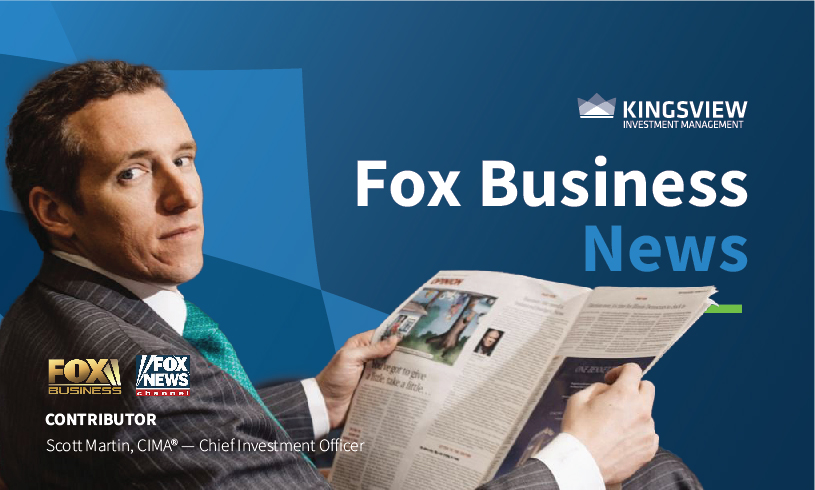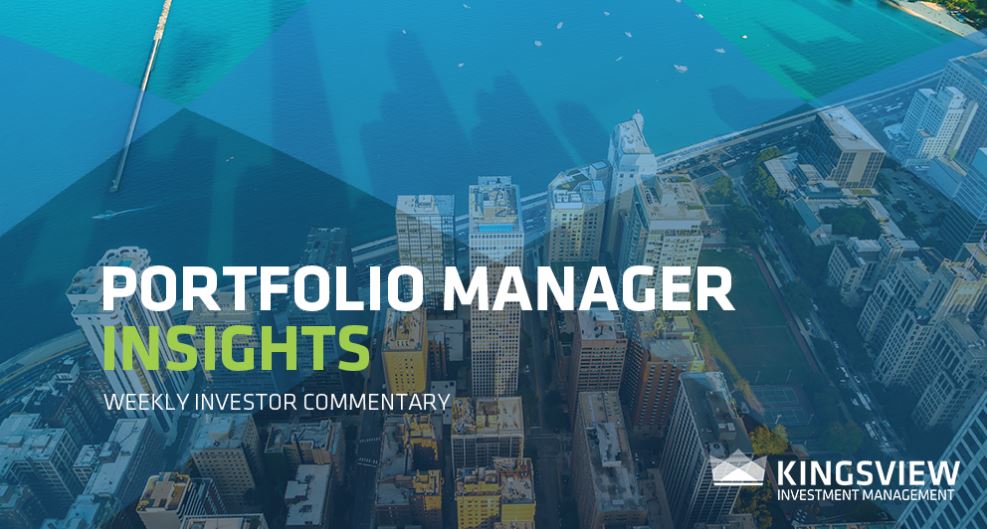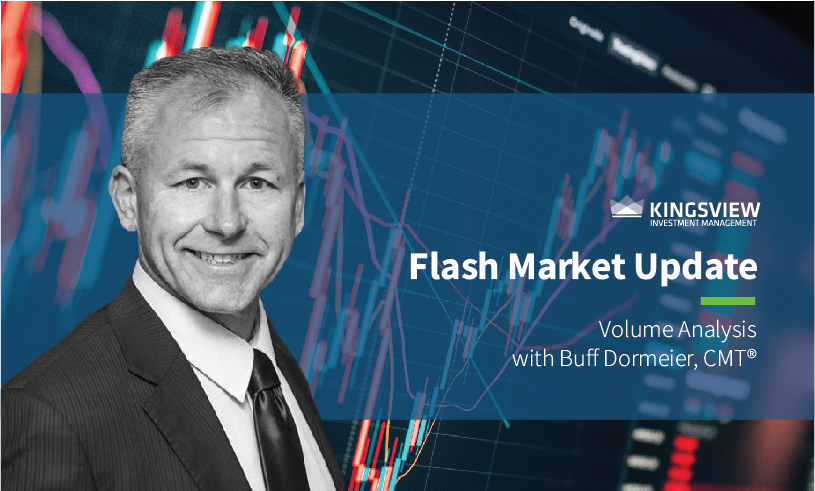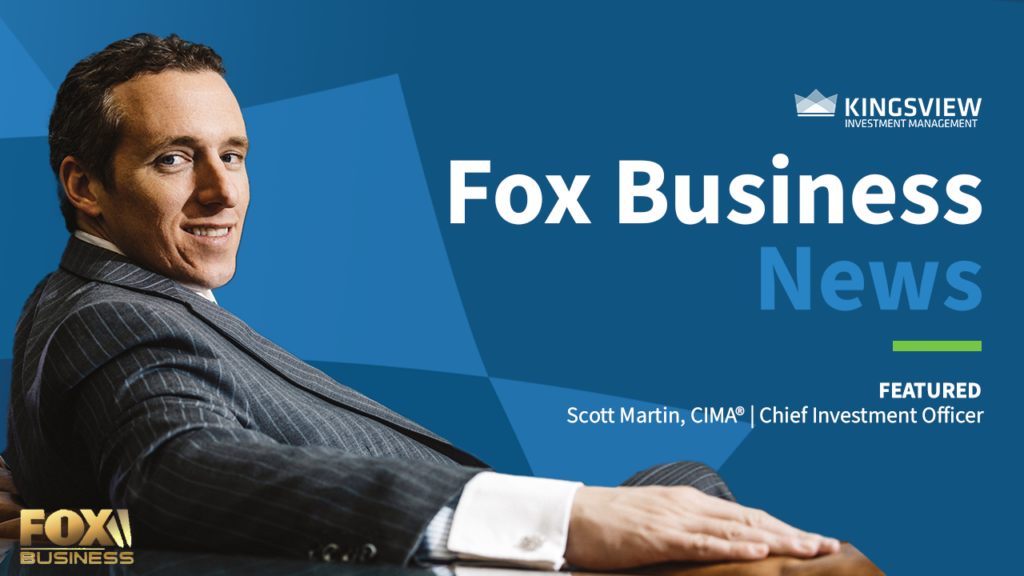Kingsview CIO Scott Martin on Fox Business Cavuto Live 4.15.23

Click here to listen to the full interview.
Program: Cavuto Live
Date: 4/15/2023
Station: Fox Business News
Time: 10:00AM
NEIL CAVUTO: Want to go to Scott Martin and Erin Gibbs, two excellent market reads, Compassionate souls themselves. I’m sure they would help out family members if they were in duress. But Scott, the one thing that’s happening here is parents, for example, are doing it at their own expense and their own, you know, retirement security. What do you make of that?
SCOTT MARTIN: Well, it’s tough. It’s a tough decision, Neal. I’m not sure which way I’d go with it yet. My kids are 12 and nine, so don’t have to worry about it too much. But they are expensive. So, look, as a parent in these days of crazy inflation, which is nicely flattening out, though, finally, you do have to be kind of careful about your retirement savings and what you spend on other items, both luxury goods and say, discretionary items too. But the reality is this, Neil. Going forward, though, I think we are going to see a more, say, deflationary environment. The market is going to continue to rebound. And therefore, folks that are concerned about their retirement as far as inflation, eating away at it, I think have less of a concern going forward.
CAVUTO: I’m just wondering what this says of our times, Aaron, whether we’re you know, you could talk about, all right, there’s a, you know, an expiration on how long you can help your kids into adulthood. But there is the reality that, you know, times are tough. Inflation has been tough. It’s not as tough, but it’s still pretty tough. So I’m wondering where this goes.
ERIN GIBBS: You know, that’s that’s interesting. And in whether it could even get worse if we do hit some type of soft recession. Now, obviously, that could, you know, pull into those savings even further. We have seen savings and cash accounts on the decline as that cash supply, the money supply has been going down. The good thing is that as some of this cash supply is coming down, not necessarily at a retirement, but just your access that is helping the inflation go down. So as people are spending less, that ultimately is also helping with the rocket inflation that we’ve seen and that decline down to 5%. So I think this is something that we’ll probably see for the next couple quarters but don’t see it being persistent where this is something that’s going to last years and years and years. It might just be something that parents have to do for the next few months.
CAVUTO: You know, I’m just wondering, guys, as well, when we took a look at all of the economic data coming out, retail sales are, in fact, slowing. And we are seeing signs right now that some of those inflationary pressures are are easing a little bit. Retail inflation year over year at about 5%. The prior month, it was running at about a 6% clip. So you’re seeing more signs that maybe all these rate hikes are having the desired effect. I just wonder if maybe we’ll see too desired effect. In other words, that Scott, it leads to more trouble down the road. We whip inflation, but we tank the economy. What do you think?
MARTIN: I agree with you 100, Neil, and I think that’s what the market’s telling the Fed, too. If you look at interest rates in the open market, they’re telling the Fed I think they’ve over tightened, my friend. So, look, depending on what the Fed does here, it’s very critical to what happens in the markets and what happens with the Treasury note rates. So, look, going forward, the Fed can always retrace, they can always keep tightening and then come in with some big rate cuts as the market is kind of predicting right now towards the end of this year. So I don’t think that there’s a disaster on our doorstep. But the Fed does need to listen to open market interest rates to kind of at least cater to what the future is telling them, which is they need to chill out on rate hikes.
CAVUTO: You know, when you look at the rate hike situation, I mean, this is everyone is paying attention to this because the Federal Reserve meets again, I guess, in May. Expectations are that maybe they’ll raise rates one more time. That might be it for a while. I don’t know. But what are your thoughts?
GIBBS: Yeah, I think that’s that’s a likely scenario. So basically, they’ve been raising rates for essentially they started 12 months ago. Right. And we hit that spike at sort of 9% inflation and now we’re down to five over the past nine months, which could say that maybe we’ll hit their target or maybe, you know, maybe 3% rather than 2%, but let’s say in six months. So they want to back off ideally three months before we hit that target. And so that having one more hike and again, having maybe another month or two pause like they did in this past, you know, or just a quarter percent could be that last break. So as long as the trend continues, I think it could be very likely that we might only see one more 50 basis point hike and then a pause to make sure that the trend continues on down. Trying to avoid, just as we were talking about avoiding a recession or avoiding taking the economy too far.
CAVUTO: Now, I know even the Federal Reserve is mentioning the R-word recession, guys. And I know that that is out there, Scott. I find that hard to sort of grasp in the face of jobs that are still steady, that are growing. You know, obviously companies are laying off. I’m not naive to that, but 236,000 jobs in the latest period, of course, we talk. About these restaurants that are still jam packed and theaters that are packed. You know, travel plans that are the busiest we’ve seen since pre-COVID Airlines to an airline reporting some dicey first quarter numbers, but almost to an airline hinting of a robust travel season. So with a backdrop like that, how can you still have a recession?
MARTIN: Agreed. It’s not going to be your typical recession. And frankly, Neal, as we know over the years, when everybody’s looking for recession, when everybody’s predicting it, when my mom calls me and asks me if we’re having a recession yet, that means it’s not going to happen, boys and girls. So this could be the most telegraphed recession in history that never comes. So I think the Fed, despite maybe like what Aaron said, maybe one more rate hike in the cards here, I don’t think pushes us into recession, but probably puts us into maybe a 1% or 2% growth environment.
CAVUTO: What do you think, Erin?
GIBBS: I think if it does come if a recession did came, it would come from something like just like we saw with SVP and some of the banks where there’s one precarious event that then spills over and sort of creates this contagion. And that’s something that so so that’s sort of the risk with these fast hikes and coming down. I’m really more of a shock event rather than it coming from the US consumer. And so I think that’s what we’re all trying to avoid and we just have to be aware that there’s a risk of it. Doesn’t mean it has to happen, but certainly we are very aware that that risk is a possibility and just to be very careful around the Federal Reserve actions.
CAVUTO: All right. We shall see what the Fed does next month. Guys, thank you for coming in on a Saturday, no less. We always appreciate that.


